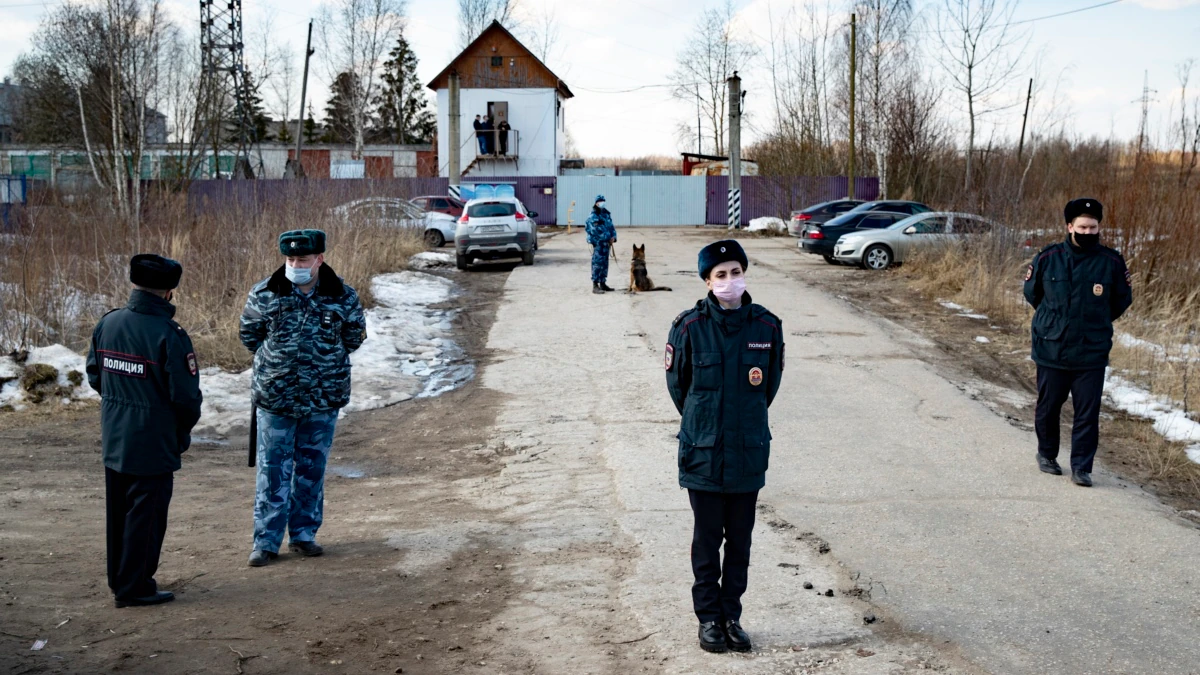
Jailed Russian opposition politician Aleksei Navalny has two herniated disks in his back and has started to lose feeling in his hands, one of his attorneys said after visiting him in prison.
Olga Mikhailova told the Dozhd television channel that Navalny has refused the prison paramedic’s prescription of the anti-inflammatory drug diclofenac and a nicotinic acid — remedies that she said have not been used in medicine for 30 years.
Navalny, 44, has complained of severe back pain and leg numbness for nearly three weeks, his allies have said. He had an MRI scan on March 24, and prison authorities told the Interfax news agency the next day that his condition was deemed “stable, satisfactory.”
Navalny relayed the result of the MRI scan to his attorneys during their visit on April 7, and Mikhailova said they show he has two herniated disks and a bulging disk.
She added that Navalny’s high fever has subsided since he was moved to the prison sick ward on April 5 with symptoms of a respiratory illness. He still has a cough, she said.
An initial test for exposure to coronavirus came back negative, Mikhailova said. She said they were waiting results of a second.
Mikhailova also said Navalny’s condition may have been exacerbated by the poor medical care provided to him in the prison colony. She said she believed that prison authorities were afraid that a visiting specialist would show that “their awful treatment led to the deterioration in his health.”
Mikhailova and Vadim Kobzev, another member of Navalny’s legal team, confirmed that Navalny remained in the medical unit of the colony.
“Aleksei walks by himself. Feels pain when walking. A very disturbing factor is that the disease is clearly progressing in terms of loss of sensitivity in the legs, palms, and hands,” he wrote on Twitter.
Navalny declared a hunger strike last week, raising even more concerns about his overall health. He is losing about 1 kilogram a day, Kobzev said.
The White House said on April 7 it is “disturbed” by reports that Navalny’s health is deteriorating, and urged Russian authorities to ensure his safety and health.
“So long as he is in prison, the Russian government is responsible for his health and well-being,” White House press secretary Jen Psaki told reporters.
The White House also reiterated that it considers Navalny’s imprisonment “politically motivated and a gross injustice,” and urged Russian authorities to “take all necessary actions to ensure his safety.”
Navalny is only months removed from a near-fatal nerve-agent poisoning in Siberia last summer. He was imprisoned after returning to Russia in January from recuperation in Germany. He is now being held in what is known as one of Russia’s toughest penitentiaries, about 100 kilometers east of Moscow.
Navalny’s health condition is potentially precarious because of his exposure the nerve-agent. He has accused President Vladimir Putin of ordering security agents to assassinate him, something the Kremlin denies.
Putin’s spokesman Dmitry Peskov has said Navalny would receive the necessary medical care but no preferential treatment.
A lawyer who has gained wide popularity for his investigations into official corruption and his slashing wit, Navalny was arrested at a Moscow airport in January on charges of violating his parole, sparking large-scale protests.
A Moscow court found him guilty of violating the terms of his parole from an older embezzlement case that is widely considered to be politically motivated, and his suspended sentenced was converted to jail time.